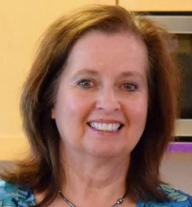Lessons in Greek
By Elisabeth Duckworth

“Remember Your High Calling!”
I press on towards the prize of the high calling of God in Christ Jesus. –Phillipians 3:14
When I was a child starting out to school, my mother would always stand at the door of our house and send us off into the world with these parting words: “Remember your high calling.” Everyday she did this, for years, without fail. And if we happened to get out the door before her, she'd step outside and call down the street, “Remember your high calling!”
Now, as a young lass I only had a vague understanding of what she meant: remember you're a Christian. Remember to behave according to all the things you learned in Sunday School. Be kind. Be good. Obey the teacher. Don't be bad. It took many years for me to begin to appreciate the profundity of her words.
Paul often uses the word “calling” in his writings as both noun and verb. It comes from the Greek klasis (η κλησις). It is the act of calling to or calling upon someone; it is a summons from someone higher to a lesser; it is being called up as a witness or defendant in court; it is an invitation, to a banquet, for example; it is to be called to or selected for a special mission; and it is the calling of someone by a certain name. Paul also uses it in the word usually translated as “church” or the people who are members of a church, ek-klesia (η εκκλησία). In this context, it means the place of assembly and the people who have been particularly called out or chosen to gather together in a place of separation.
In Paul's hands, and in the hands of the apostle Peter and the Hebrews author, the teaching of a “calling” possesses an incredibly profound complexity:
- Romans 11:29 – The gifts and calling of God are irrevocable.
- I Corinthians 1:26 – For you see your own calling, sisters and brothers, how that not many of you were wise by human standards…
- Ephesians 1:18 – So, with the eyes of your heart enlightened, you may know what is the hope to which He has called you.
- Ephesians 4:4 – There is one body and one Spirit, just as you were called to the one hope of your calling.
- Philippians 3:14 – I press on to the prize of the high calling of God in Christ Jesus.
- I Thessalonians 5:23-24 – May the God of peace Himself sanctify you entirely; and may your spirit, soul and body be kept sound and blameless at the coming of our Lord Jesus Christ. The One Who calls you is faithful, and He will do this.
- II Thessalonians 1:11 – [We ask that] our God would make you worthy of His call and will fulfill by His power every good resolve and work of faith, so that the name of our Lord Jesus Christ may be glorified in you, and you in Him, according to the grace of our God and the Lord Jesus Christ.
- II Timothy 1:9 – …Who saved us and called us with a holy calling, not according to our works, but according to His own purpose and grace.
- Hebrews 3:1 – Therefore sisters and brothers, holy partners in a heavenly calling, consider Jesus, the apostle and high priest of our confession.
- II Peter 1:10 – Therefore sisters and brothers, be all the more diligent to make your calling and election confirmed, for if you do this, you will never stumble.
- Mark 3:13 – …[He] called to Himself those whom He wanted, and they came to Him.
- John 10:3 – He calls His own sheep by name and leads them out.
There are some wonderfully comforting yet fearful truths conveyed in these verses. Our “calling” is more than just behaving like a good Christian as I thought as a child. Our calling began before the foundation of the world when God chose the weak and foolish things of this world to be a chosen people, precious, a royal priesthood, called, chosen and faithful (I Corinthians 1:27; Ephesians 1:4; II Thessalonians 2:13; James 2:5; I Peter 2:4, 9; Revelation 17:14). Our “calling” is not a one-time event that takes place the moment we become a Christian. It is an ongoing, daily act of power, growth, and grace initiated by and perpetuated by God throughout the course of our lives, for “The One Who began a good work in you will bring it to completion until the day of Jesus Christ” (Philippians 1:6). At the same time, we are to “work out our own salvation with fear and trembling; for it is God Who is at work in you, enabling you both to will and to work for His good pleasure” (Philippians 2:12-13).
What a glorious mystery that God would choose to call each one of us, by name, to fill us with His own Spirit, to provide us with His grace and the gifts of the Spirit, and to empower us to embrace our undeserved calling. Through Himself, God is pleased to allow us the privilege of bringing glory and praise to His name, until at last we can cast our crowns before the throne of our Saviour God Who, “having loved His own, loved us to the end” (Revelation 4:10; John 13:1). What a calling!
~ Next time we'll look at “Circumcision” [Bet that got your attention!]